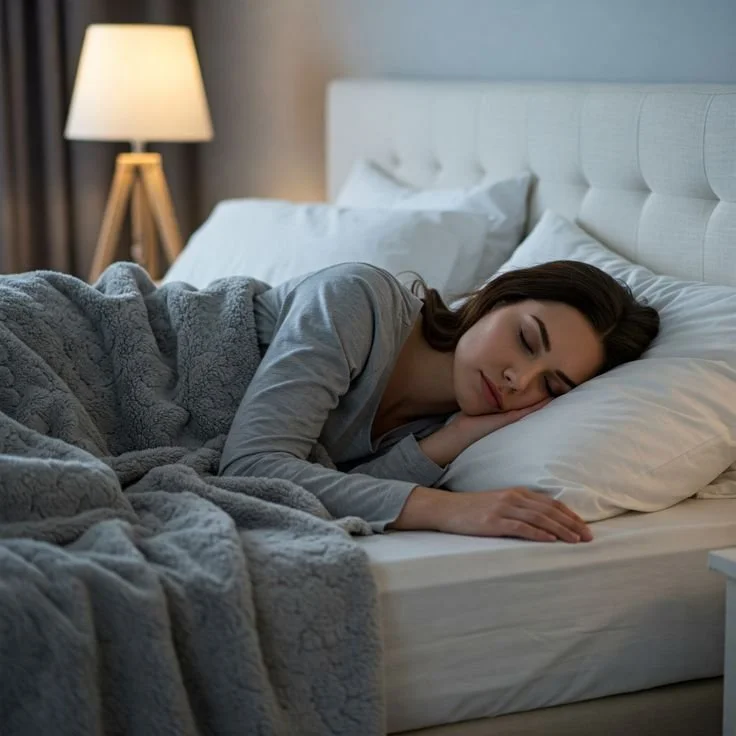Why Prioritizing Sleep Can Strengthen Your Relationship
Do you know how much your sleep affects more than just energy? In our nonstop world, rest often gets ignored. For most couples, this comes at a price—not just physically, but emotionally too. As licensed sleep psychologist Wendy Troxel, Ph.D., explains, neglecting sleep can slowly erode both intimacy and closeness.
What “Healthspan” Really Means
First, let’s understand healthspan. It’s not just about living longer. Rather, it’s thriving mentally, emotionally, and physically throughout life. For that, quality rest is the backbone. Sleep shields brain function, balances mood, supports memory, and fights inflammation. Consequently, lack of sleep damages our ability to connect with loved ones.
How Sleep Builds Bonds — or Breaks Them
Next, think about the simple fact of sharing a bed. Couples often expect romantic nights. Yet, issues like snoring, mismatched schedules, temperature battles, and tug-of-war over sheets can spark friction. Meanwhile, if those small frustrations aren’t addressed, they can breed resentment.
On the other hand, sleeping together can deepen emotional safety. So, the debate isn’t about whether to share a bed. Rather, it’s about how to align sleep routines in a healthy, collaborative way.
The Connection Between Sleep & Sex
Furthermore, sleep strongly influences intimacy. For women, more sleep tends to boost sexual desire. Meanwhile, men often suffer a drop in testosterone when sleep-deprived. Accordingly, rest becomes a natural foundation for both emotional closeness and active desire.
Therefore, couples should see sleep not as a chore, but as a collective asset. Together, small changes—like cooling sheets or synced bedtimes—can make a big impact.
Navigating Menopause & Midlife Sleep Shifts
Additionally, sleep often falters during menopause. In fact, around 60% of women report disrupted rest from hormone shifts, hot flashes, and mood swings. Thus, solutions range from flexible bedding to room temperature tweaks and hormone therapy.
Moreover, naming the issue can ease tension. So, honest talks about night sweating or wake-ups help reduce conflict—and foster support through life’s transitions.
A Simple Plan for 3 AM Wake-Ups
Then, what if you wake up and can’t fall back asleep? Here’s Troxel’s tip: after about 20 minutes awake, get up. Better yet, do something calm until you feel sleepy again. Avoid screens or stressful thoughts.
Also, try a brief “scheduled worry” session in the early evening. Next, jot down any concerns. That way, your brain won't churn on problems when you're trying to sleep.
Wearables & Heart Rate Variability (HRV)
Meanwhile, sleep trackers are useful when used wisely. Still, they aren’t medical tools—and shouldn’t be elevated that way. However, heart rate variability (HRV) is meaningful. Because it reveals the stress versus recovery balance. So, improving HRV often aligns with better sleep and emotional health.
Why It Matters for Couples
Moreover, better rest supports healthier habits at home. Specifically, couples who sleep well tend to share more positivity. Additionally, they report fewer fights and deeper trust.
Indeed, research from sources like Verywell Mind shows that sleeping beside a partner can soothe anxiety, build emotional safety, and even strengthen physical intimacy through oxytocin release. Therefore, the sleep connection goes far beyond tissue-soft lighting and fluffy pillows.
How to Make Sleep a Team Sport
In addition, here are practical steps for both partners:
Share sleep preferences—discuss ideal temperature, bedding type, and night routines.
Tune the environment—a cooler room (around 65–68°F), layered blankets, and noise control all count.
Sync schedules—align bedtimes whenever possible for a better rhythm.
Respect wake-ups—share responsibilities like bathroom trips or lighting.
Use time wisely—if someone wakes up, let them wake gently.
Cultivate rituals—wind down together, even if it means a short chat or back rub.
Wrapping It All Up
Finally, sleep isn’t something you do alone. Rather, it’s a shared investment in your bond. Because quality rest feeds emotional connection, boosts intimacy, and builds resilience. So, when both partners make sleep a priority, relationships deepen.
Ultimately, what counts isn’t just how many hours you sleep—it’s how well you sync rest practices to support each other. Then, you'll experience renewed closeness, fewer arguments, and a healthier love life.
Key Takeaways
Sleep fuels your overall healthspan, including your emotional well-being.
Relational harmony benefits from better rest, especially when couples sync their habits.
Sexual desire and hormone balance rely on solid sleep, so verdict: prioritize it.
Menopause brings challenges, but transparency and adaptability go a long way.
Smart sleep hygiene and recovery methods—like get-up-if-awake and evening worry time—make big differences.
Trackers help, especially HRV trends, but shouldn't dominate your mindset.
In summary, take sleep more seriously—not just for you, but for both of you. Because doing so strengthens your bond in small but profound ways. And that’s something worth investing in.


